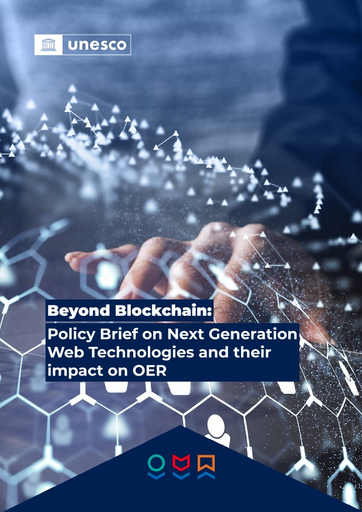This policy brief updates a 2021 UNESCO-commissioned study on blockchain and Open Educational Resources (OER). It explores how next-generation web technologies—particularly blockchain tools like self-sovereign identity, distributed ledgers, verifiable credentials, and cryptographic verification—interact with OER and artificial intelligence (AI). The brief focuses on how cryptography can enhance copyright tracking, collaborative content creation, and digital credentials. It also examines both the potential benefits and challenges of implementing distributed trust systems within OER ecosystems. Furthermore, it considers how blockchain-based ledgers might support the fair and inclusive use of AI in knowledge sharing and education, especially in promoting equitable global access.

